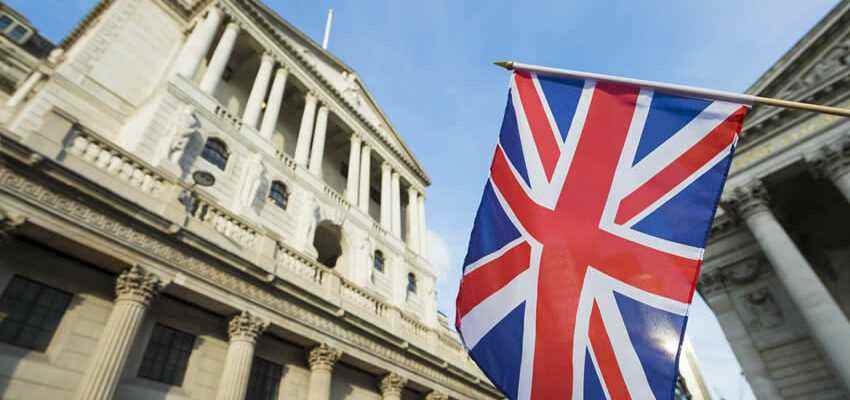by Andy Bruce and William Schomberg
LONDON, June 16 (Reuters) – The Bank of England (BoE) on Thursday announced a quarter-point hike in its key interest rate, its fifth hike since December, and promised that it would act “with force “if necessary in the face of the risks linked to inflation, that it expects to even exceed 11% in a few months.
The hike, which takes Britain’s key rate to 1.25%, matches consensus based on forecasts from economists and analysts polled last week by Reuters, but the estimated probability of a half-point hike had increased significantly in recent days to almost 50%.
The central bank has therefore opted to maintain a gradual tightening of its strategy, which it justifies by the prospect of a 0.3% contraction in economic activity over the April-June quarter.
The decision was passed by six votes, with three members of the Monetary Policy Committee (MPC) voting for a half-point hike.
The UK policy rate is now at its highest level since January 2009.
In December, the BoE was the first of the world’s major central banks to engage in a cycle of rate hikes, faced with a deterioration in the economic situation which combines high inflation and slowing growth.
But some consider this tightening too slow to curb inflation and to prevent it from taking root in the economy via wage increases and rising price hike expectations.
“The magnitude, pace and timing of any further policy rate hikes will reflect the Committee’s assessment of economic prospects and inflationary pressures,” the BoE said in a statement.
“The Committee will be particularly on the lookout for indications of more persistent inflationary pressures and, if necessary, it will react forcefully,” he adds.
THE “PARTICULARLY WEAK” POUND
UK consumer price inflation hit 9% in April, its highest level in 40 years, and the BoE raised its forecast on Thursday, saying it now expects to peak slightly above 11% in October, when energy prices rise again.
The ongoing inflationary spike looks set to last longer in the UK than in other economies, partly because of the lag induced by the mechanism of increasing gas and electricity prices but also because of the impact on foreign trade of the country’s exit from the European Union.
The depreciation of the pound sterling observed in recent weeks, largely linked to expectations of higher interest rates in the United States and the euro zone, also threatens to fuel inflation as well.
In its press release, the BoE also notes that the pound is “particularly weak against the US dollar”.
The US Federal Reserve announced a three-quarter point rate hike on Wednesday, the largest in the United States since 1994, and the Swiss National Bank (SNB) in turn surprised the markets on Thursday by raising its own interest rate. key interest of 50 basis points, at -0.25%.
For its part, the European Central Bank (ECB) said last week that it was preparing rate hikes for its next two meetings, in July and September.
On the financial markets, the yield on British ten-year government bonds was up sharply a few minutes after the BoE’s announcements at 2.571%, while the pound sterling fell by 0.84% against the dollar at 1.2076.
On the London Stock Exchange, the FTSE 100 index then yielded 2.41%.
(Report William Schomberg and Andy Bruce, French version Marc Angrand)
